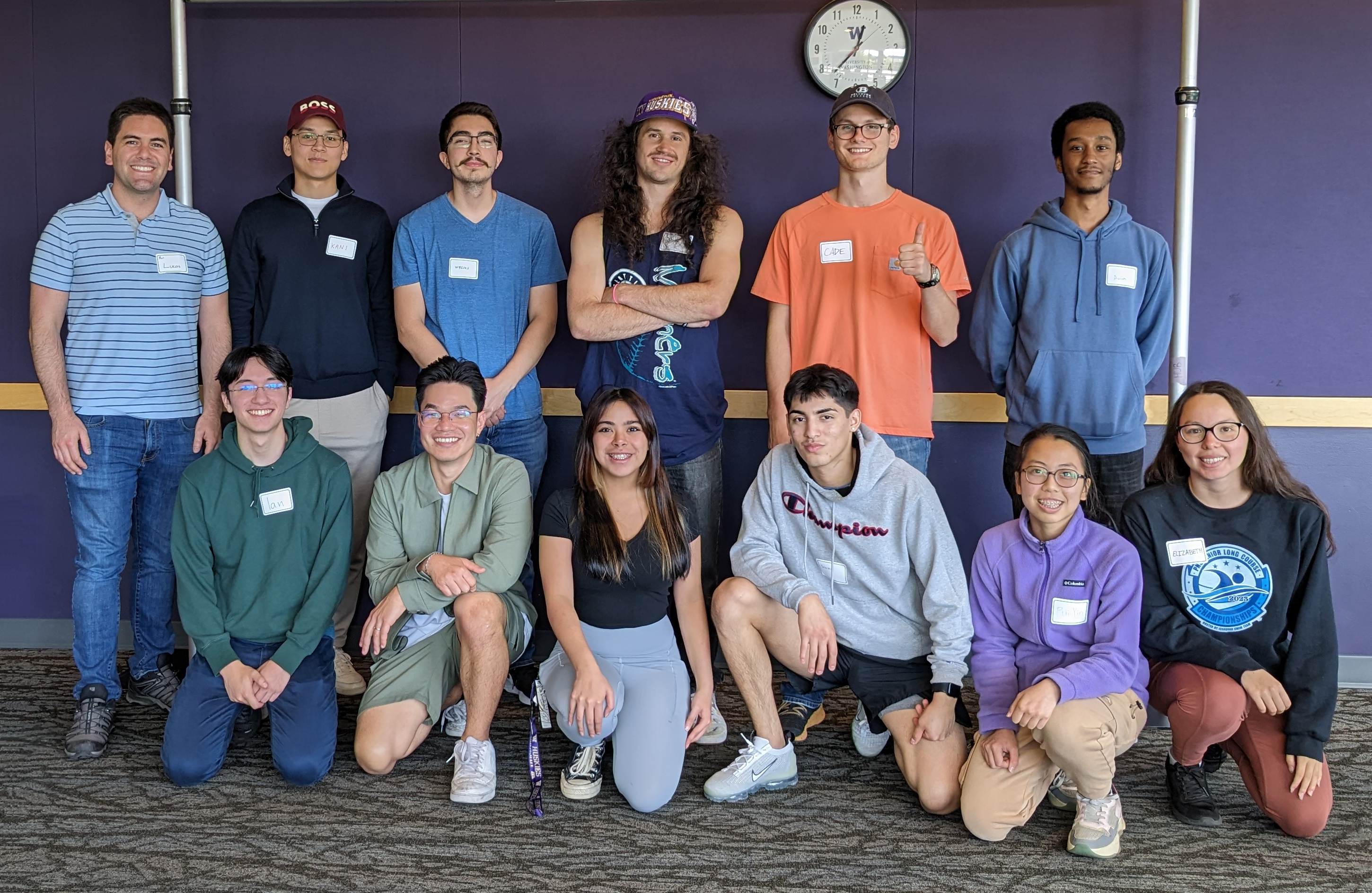Dec. 11, 2023
Sunscreen, computers, food, medicine — teensy, tiny nano-engineered materials are in common, everyday items that most people don’t think much about. Applications of nanomaterials are wide and varied — a revolution in modern industry. UW mechanical engineering professor Lucas Meza, a member of the Institute for Nano-Engineered Systems (NanoES), is helping community college students explore this field of research and technology in his seminar on Nano-Engineering of Materials and Structures (NEMS), a four-week intensive summer program that is part of the Path to UW Program.
In the course, students learn about nanomaterials and how they are used in the world around us. They explore nanofabrication and nanomaterial characterization tools, and they get to see many of the techniques in action during tours of the Washington Nanofabrication Lab and the Molecular Analysis Facility. Students also explore the social, environmental and health impacts of nanomaterials and consider the ethical implications of using them in various technologies.
“I think it was a great introduction into nanoengineering and why it’s important,” said Randon Serikawa, a student from North Seattle College that took the course in July. “It gave us insight into what broad nano-engineered systems are, their applications and how they have a place in any field. They’re more multidisciplinary than I thought since the manipulation and understanding of nanoparticles involves not only a good grasp on engineering, physics and chemistry, but a lot of those we use today were modeled after nano-systems that are naturally occurring.”
Summer 2024 will be the third year for the course, which was recently incorporated into Path to UW, a program which gives local community college students planning resources, community, and academic preparation experiences to help them transfer to UW. Meza leads the NEMS course along with co-instructors Marco Salviato, a professor in aeronautics and astronautics, and Vipin Kumar, a professor in mechanical engineering. The three received initial funding for the program from the National Science Foundation (NSF) as part of a grant investigating the toughening mechanisms of nanocellular foams. These nanofoams can be used in everything from aircraft composite panels to protective equipment like helmets to more durable filters for water purification. The grant supports the team’s efforts to use nanoengineered materials as a platform to bring “academically talented, low-income students from community colleges … to teach them about nanomaterials and inspire them to pursue a career in engineering.”
“A lot of non-traditional and underrepresented students attend a community college,” said Meza. “Our mission was to engage with community college students who are interested in pursuing a STEM career by giving them the full experience: attending lectures, touring labs, conducting experiments, and learning about a variety of nanotechnology applications. By the end of the course, students even develop their own research proposal.”
The NanoES Institute supports this free program by providing stipends to the participants, which supports their travel and food expenses in addition to creating a more equitable system that allows students to participate who otherwise couldn’t take the time away from work and family. The Path to UW program provides some stipends to Seattle community college students and additionally grants all students UW college credit, helping them to get their foot in the door at UW.
Elizabeth Ma is a high school senior participating in the Running Start program, which gives high schoolers the opportunity to enroll in college courses tuition-free while earning dual high school and college credits. She completed Meza’s course last summer and said it made her think of everything with a new perspective.
“It fascinates me how looking at something from a nanoscale can reveal new things about it, even something we commonly see, such as a butterfly and how the wings have photonic crystals to create beautiful colors,” she said. “The course confirmed my interest in STEM fields, arming me with the tools to explore more in-depth topics that really interest me.”
“I didn’t realize before this course that Nanotechnology is not only the present but also the future,” said Serikawa. “I now see a world made up of tiny pixels that can be understood, manipulated and inspirational for their properties and interactions.”
Community College students interested in taking the course in July of 2024 can apply here.
